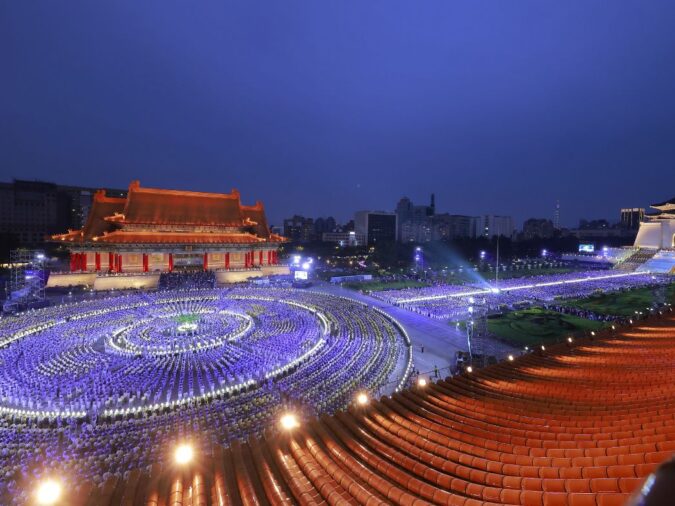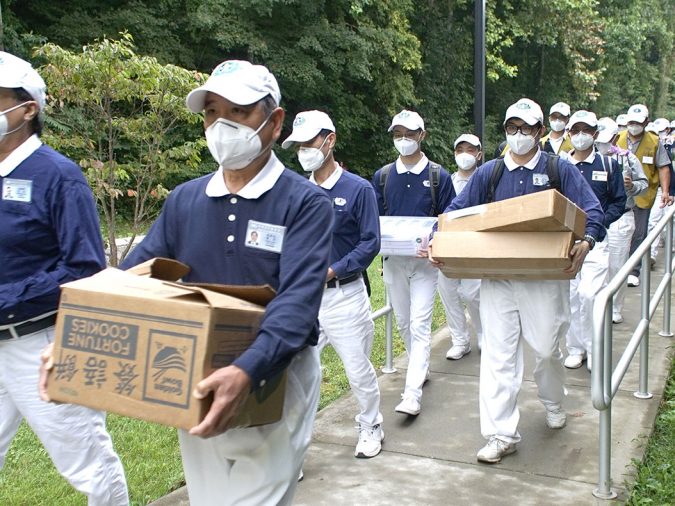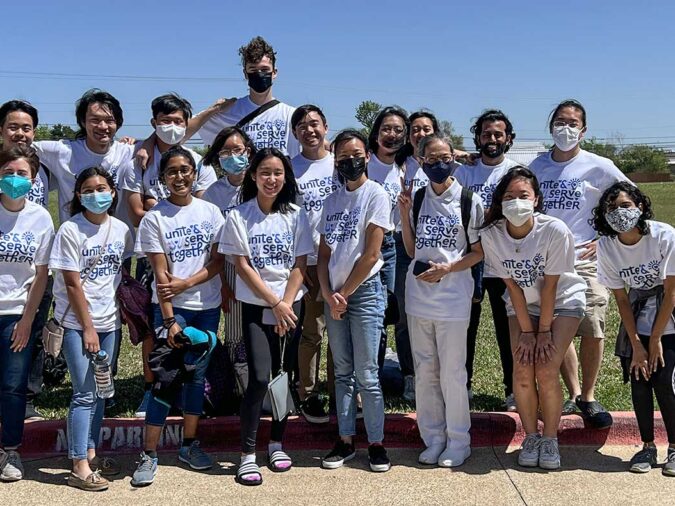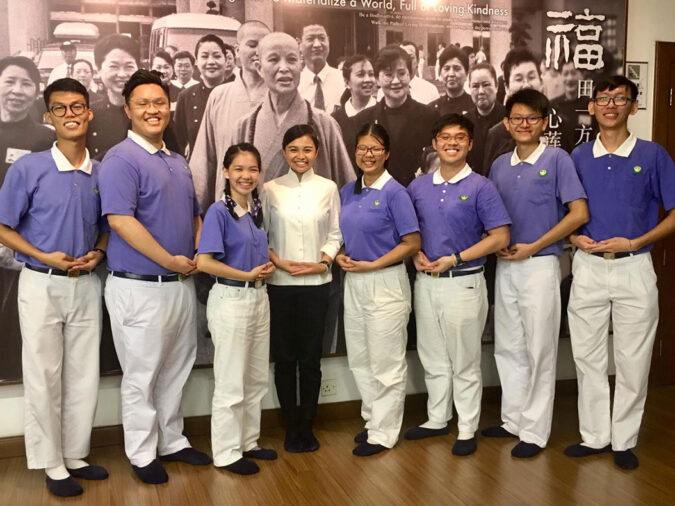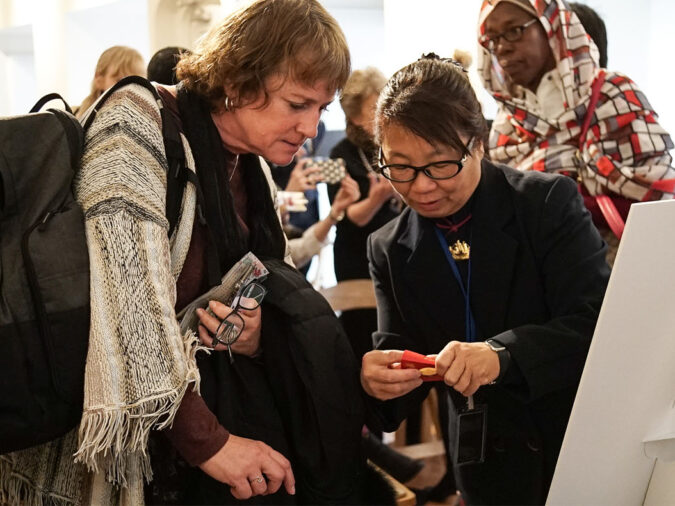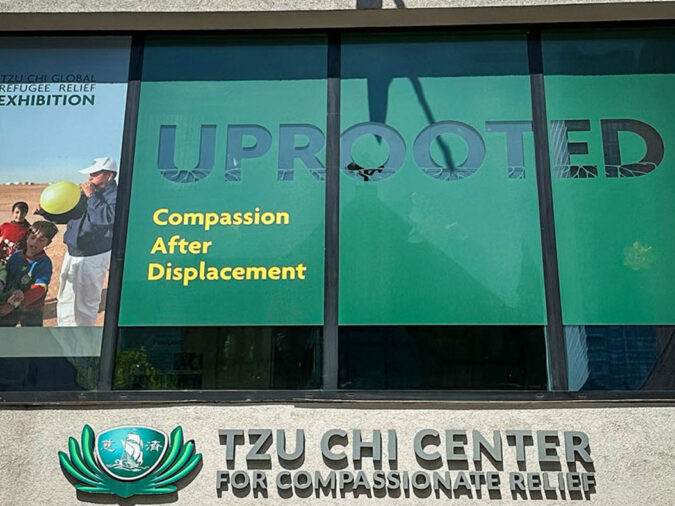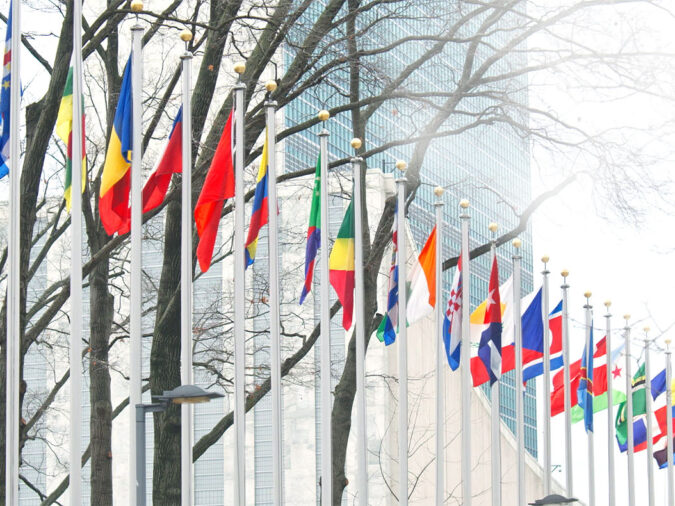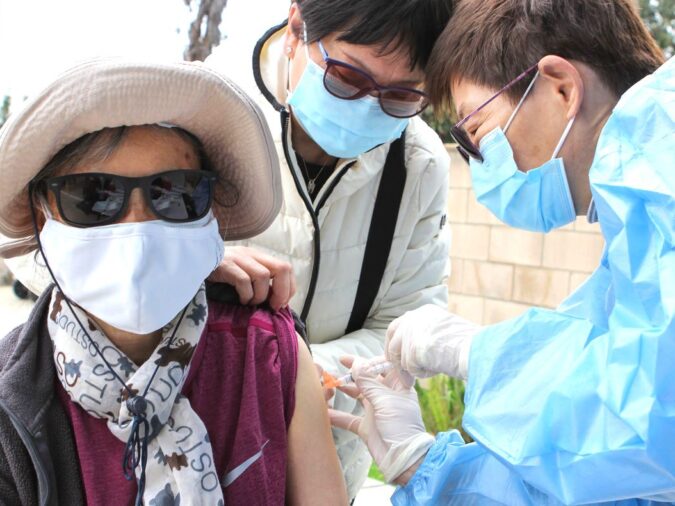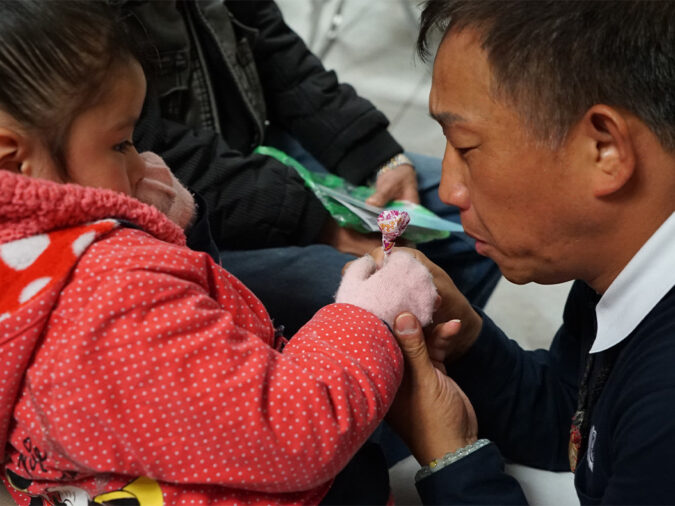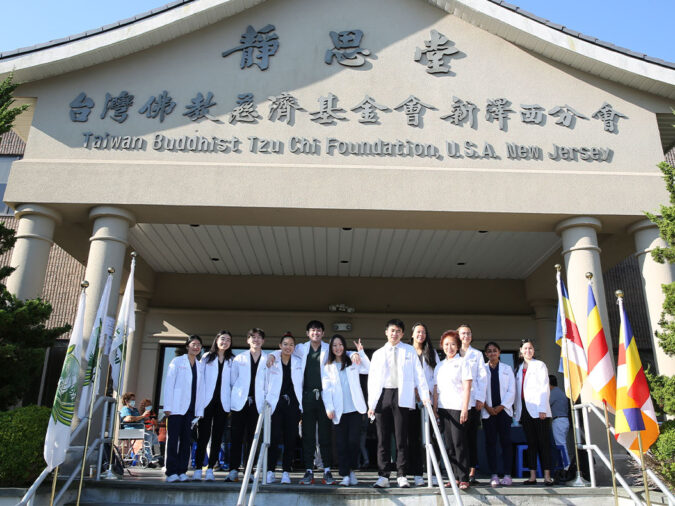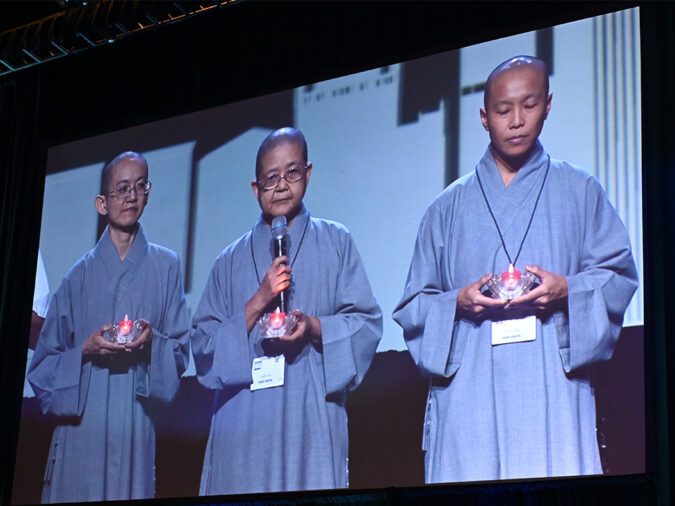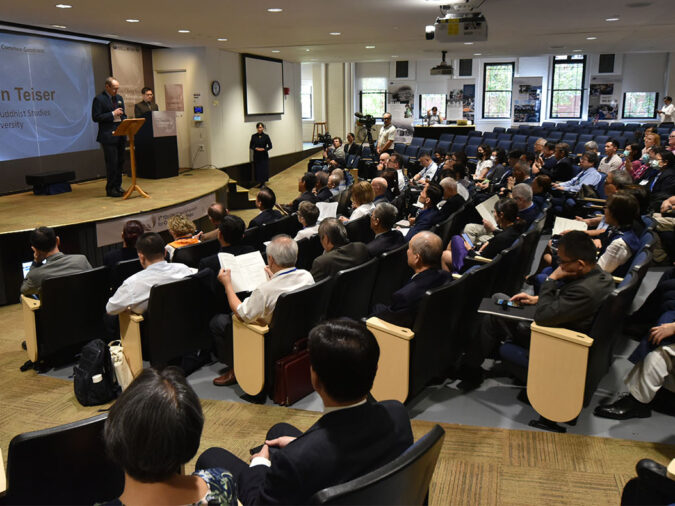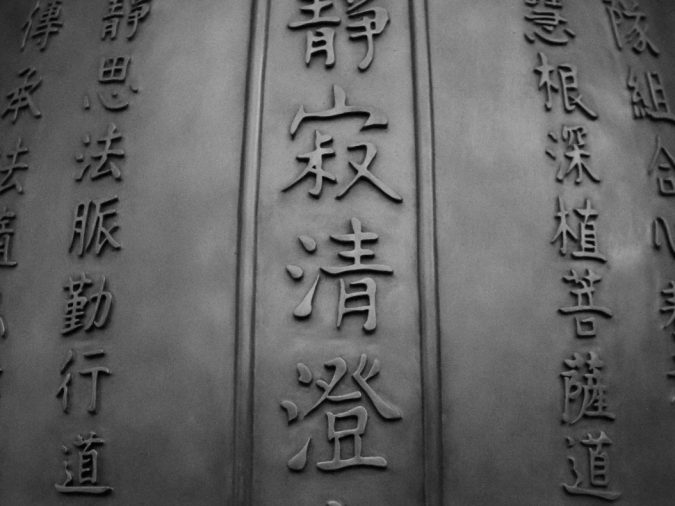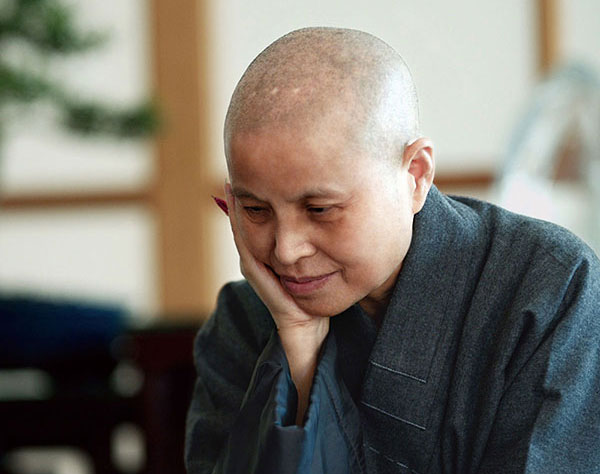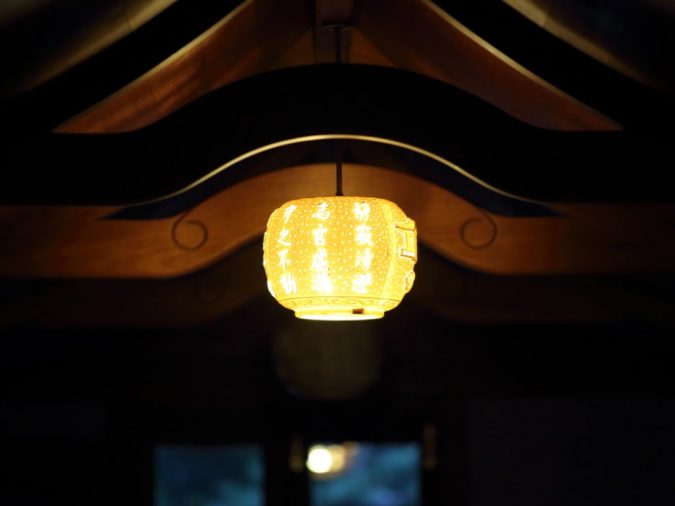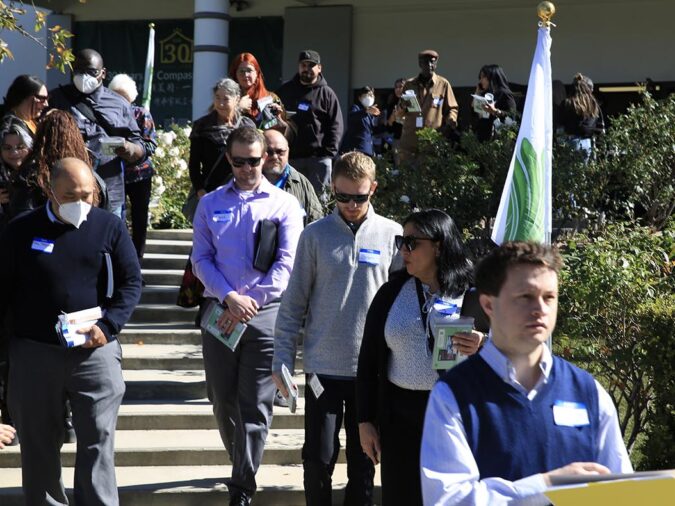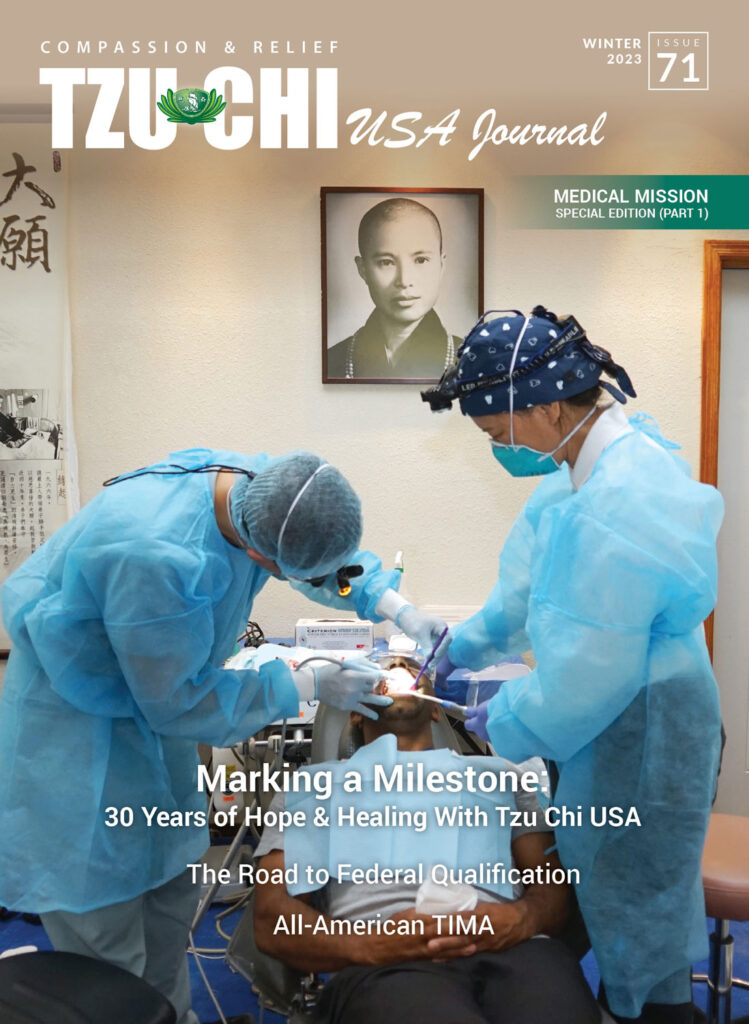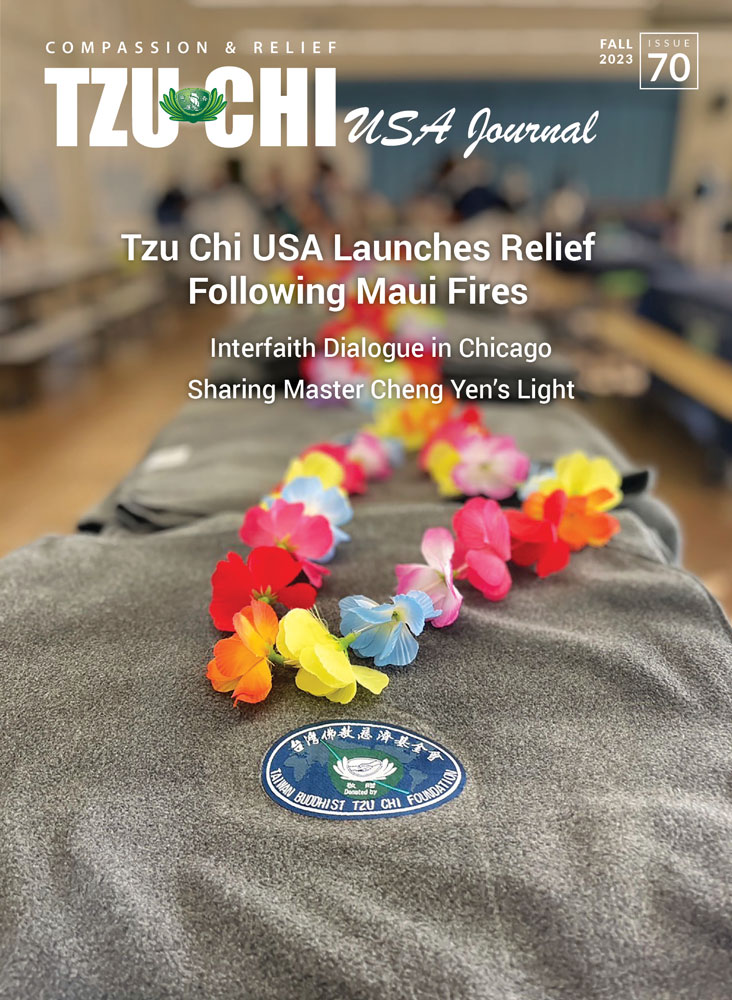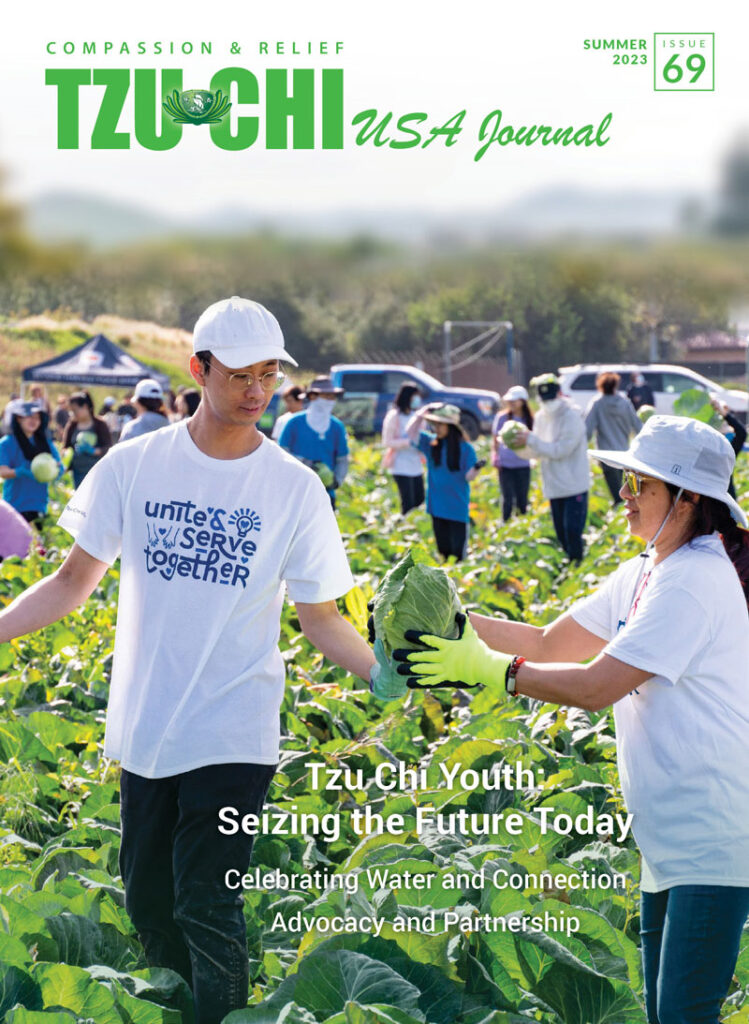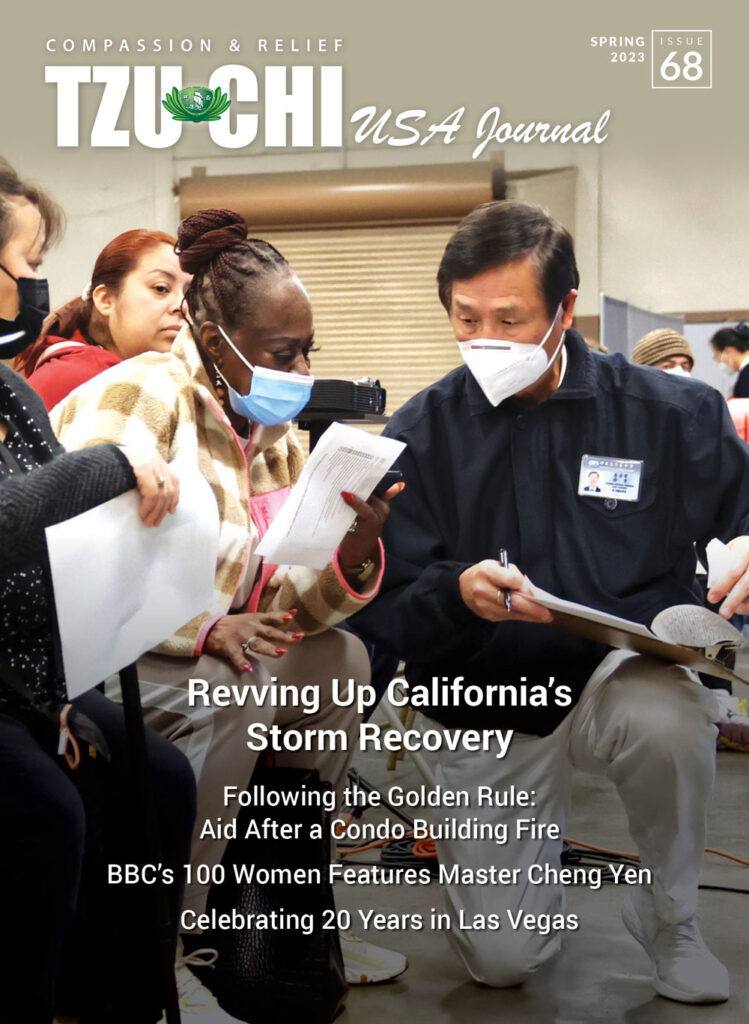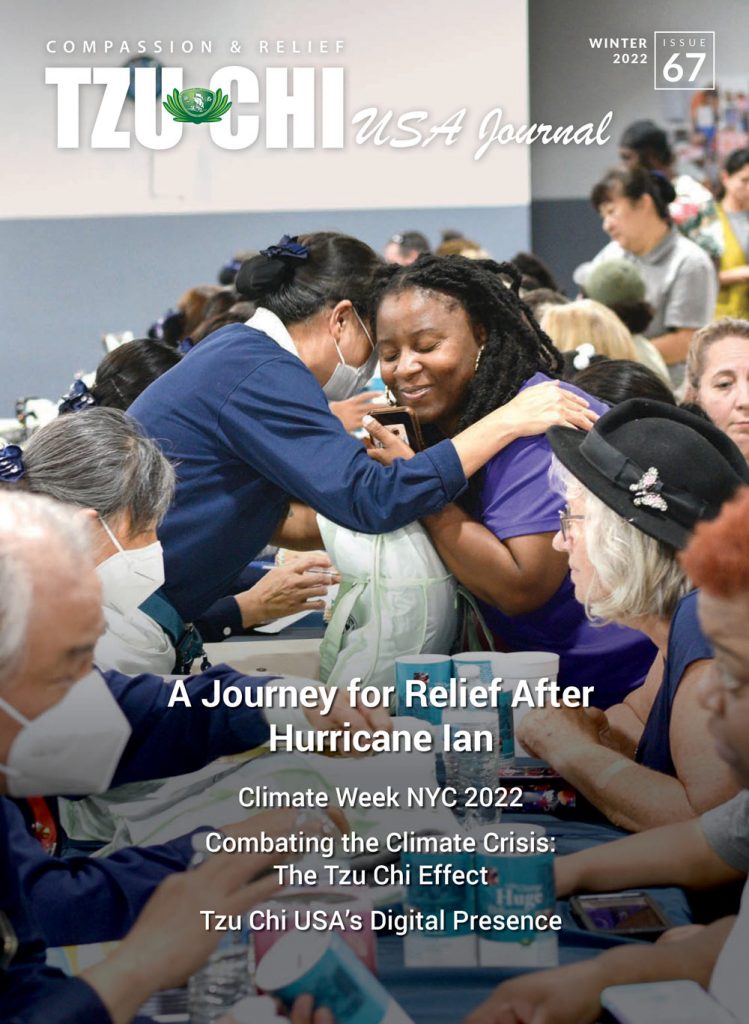Being Able to Give Is a Blessing
Master Cheng Yen’s Teachings
Translated by the Dharma as Water Team
Published #69 | Summer 2023 Issue

SHARE:
To willingly undergo hardship for the sake of helping others is compassion.
Master Cheng Yen’s Teachings | Translated and Compiled by the Dharma as Water Team
When we can recognize and cherish our blessings, we will feel a sense of gratitude every day. We will be unafraid of hardship in our work because we would understand that being able to work is actually a blessing. However, we must also invite others to create blessings so that the blessings do not end.
Fifty-seven years ago, Tzu Chi began with thirty donating members saving fifty cents [NT, equivalent to US 2 cents] every day in their bamboo banks. They also went to the market and urged many people to donate. In this way, Tzu Chi went on to establish the Four Missions [charity, medicine, education, humanistic culture]. It was an arduous process and quite miraculous, but it is not a myth. It was because everyone had the aspiration, and by gathering these extraordinary “good causes and conditions,” we came all this way to the present, paving a path of love to more than a hundred countries and regions.
There are many things on my mind every day. I worry about the imbalance of the four elements, and my heart goes out to those who are sick and suffering in this world. I am grateful for the many kindhearted people and Bodhisattvas around me who are sharing my burden of worry and concern. With so many volunteers around the world working toward a common direction and doing Tzu Chi’s work, going among people, and putting our teachings into practice in the world, I am truly content with my life.
Tzu Chi was established in frugal and harsh conditions. Though we monastics live a frugal life, we serve with so much joy. When we started doing charity relief work, we saw how poverty starts from illness, and illness causes poverty. Is it enough to just provide enough for a poor family to cover their three meals? Offering one-time financial assistance is not the ultimate solution. Charity work must be continuous and sustained, and love must also be accumulated, little by little.
In the early days, we urged everyone to deposit fifty cents in their bamboo banks to help people before going to the market to buy groceries. At the time, some members asked me, “Master, why the hassle? With fifty cents a day, that would be fifteen dollars a month. I will just donate fifteen dollars once a month.” I told them I did not want them to form the aspiration and do good deeds just once a month; I wanted them to do good deeds everyday. It is very valuable for everyone to think about doing good deeds and helping others every day. This is creating blessings.
As long as we are willing to give love, whether it is with ten dollars or a hundred dollars, the blessings from our collective giving can be so powerful. Furthermore, we can go on and cultivate both blessings and wisdom. Not only do we create blessings on our own, but we must also have the wisdom to humble ourselves and call on others to create blessings together so that this energy of blessings will never end.
Over the last few decades, severe disasters have struck Taiwan. Be it on the frontline or as support in the background, Tzu Chi volunteers from all regions have mobilized and mindfully given their Great Love. With the power of our fifty cents, we have accomplished a lot. Following the 921 earthquake in 1999 [a disaster in Taiwan that caused around 2,400 deaths and 10,000 injuries], Tzu Chi has helped rebuild more than fifty schools. At the time, some volunteers were very concerned and asked, “Master, where will the money come from?” I replied, “The money is in everyone’s pockets. I have faith in my own selflessness and in people’s love.”
Recently, Tzu Chi provided aid for survivors of an earthquake in Türkiye, for the Ukrainian refugees, and in the Buddha’s homeland of Nepal. I hope we can have more strength to help. Looking at the world, there are droughts, famines, poverty, and so on. The various natural disasters and manmade calamities cause much suffering. Sometimes, I hear people say, “I am working so hard.” I think about whether their hardships are as severe as what Tzu Chi volunteers witnessed in Lumbini, Nepal. People lived in huts made of a few straws and bamboo sticks, and we could easily see through the huts from front to back. This is how people are living in our current time. The scenes are real, and the suffering is real. Why is life so hard for them? If they cannot improve their own circumstances, we must form aspirations to go to them.
Thanks to advanced technology and prosperous social development, we are able to live in privileged environments, so we must cherish our blessings with gratitude every day. Tzu Chi volunteers who do the work never say that the work is tiresome; instead, we say we are “blessed,” and this is because having the ability to work is a blessing. We are not doing the work for ourselves. Instead, we first consider the needs of society. We must put “benefiting others” before “benefiting ourselves,” for only then can the world progress and our businesses develop further. Therefore, by benefiting others, we also benefit ourselves.
As we are grateful for our blessings, we must also use our wisdom to demonstrate the truth of the Buddha’s teachings. As I no longer have a loud voice, I cannot extensively explain the Buddha’s teachings. However, I thank the staff from the Department of Literature and History who have carefully compiled the history of Tzu Chi. Tzu Chi has developed and provided services according to what the world needs. Every story had a year, month, day, people, and matters associated with it. In addition, it was not just stories we have heard, but rather things we have done. When Tzu Chi volunteers hear these stories, they will realize how they were the ones who created the history, and they can feel how it has enriched their lives.
I am grateful that Tzu Chi volunteers have taken the Buddha Dharma to heart and put it into practice. We must make use of the causes and conditions of our time and use our advanced technology to spread the Buddha Dharma. We must not take the Dharma lightly or disrespect the teachings. When we attain understanding of principles and are able to eloquently speak about them, we must not become arrogant. If we do, then whether we are teaching or listening, it makes no difference because our foremost feeling is self-importance. This is not beneficial to the Buddha Dharma. We must have a heart of reverence as we earnestly put the teachings into practice in our daily living. The Buddha Dharma is a path paved under our feet. So, let us take steadfast steps forward on this path and bring out the value of our lives. Please always be mindful!
Compiled from Master Cheng Yen’s teachings from March 5 to 11, 2023
SHARE:

